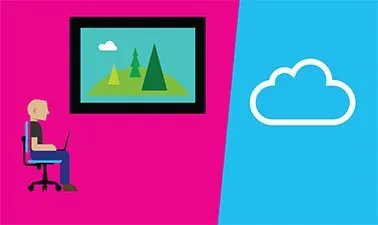
Developing Microsoft Azure Solutions 
This course provides an introduction to developing Microsoft Azure Solutions. Students will learn how to deploy an ASP.NET MVC application to the Microsoft Azure platform, and gain an understanding of the model-view-controller (MVC) pattern. Through hands-on activities, they will gain the skills to create and manage cloud-based applications. ▼
ADVERTISEMENT
Course Feature
![]() Cost:
Cost:
Free
![]() Provider:
Provider:
Edx
![]() Certificate:
Certificate:
No Information
![]() Language:
Language:
English
![]() Start Date:
Start Date:
1st Oct, 2017
Course Overview
❗The content presented here is sourced directly from Edx platform. For comprehensive course details, including enrollment information, simply click on the 'Go to class' link on our website.
Updated in [March 06th, 2023]
This course, Developing Microsoft Azure Solutions, provides students with the knowledge and skills to develop and deploy applications to the Microsoft Azure platform. Students will learn how to deploy an ASP.NET MVC application to the Microsoft Azure platform and expand on the application by learning about Microsoft Azure’s capabilities and then adding functionality to make their application a more robust and highly available cloud-based solution. Students will also learn how to use Microsoft Azure Storage, Microsoft Azure Service Bus, and Microsoft Azure Active Directory. Upon completion of this course, students will have the skills to develop and deploy applications to the Microsoft Azure platform.
[Applications]
After completing this course, students can apply their knowledge to develop and deploy applications to the Microsoft Azure platform. They can use the skills they have learned to create applications that are highly available, secure, and scalable. Additionally, they can use the Azure platform to create applications that are able to take advantage of the cloud's features, such as data storage, analytics, and machine learning.
[Career Paths]
1. Cloud Solutions Architect: Cloud Solutions Architects are responsible for designing, developing, and managing cloud-based solutions for their organization. They must have a deep understanding of cloud computing technologies, such as Microsoft Azure, and be able to develop and implement strategies for deploying and managing cloud-based applications. As cloud computing continues to grow in popularity, the demand for Cloud Solutions Architects is expected to increase.
2. Cloud Developer: Cloud Developers are responsible for developing applications and services that are hosted on cloud platforms, such as Microsoft Azure. They must have a strong understanding of cloud computing technologies and be able to develop and deploy applications that are secure, reliable, and scalable. As cloud computing continues to grow in popularity, the demand for Cloud Developers is expected to increase.
3. Cloud Security Engineer: Cloud Security Engineers are responsible for ensuring the security of cloud-based applications and services. They must have a deep understanding of cloud computing technologies, such as Microsoft Azure, and be able to develop and implement strategies for securing cloud-based applications. As cloud computing continues to grow in popularity, the demand for Cloud Security Engineers is expected to increase.
4. Cloud Database Administrator: Cloud Database Administrators are responsible for managing and maintaining databases that are hosted on cloud platforms, such as Microsoft Azure. They must have a strong understanding of cloud computing technologies and be able to develop and deploy databases that are secure, reliable, and scalable. As cloud computing continues to grow in popularity, the demand for Cloud Database Administrators is expected to increase.
[Education Paths]
1. Bachelor of Science in Computer Science: This degree program provides students with a comprehensive understanding of computer science principles and their application to the development of software and hardware systems. Students will learn about programming languages, operating systems, computer networks, and software engineering. They will also gain experience in developing applications for the Microsoft Azure platform. This degree is ideal for those looking to pursue a career in software engineering, cloud computing, or web development.
2. Master of Science in Cloud Computing: This degree program focuses on the development and deployment of cloud-based applications and services. Students will learn about cloud computing architectures, cloud security, and cloud storage. They will also gain experience in developing applications for the Microsoft Azure platform. This degree is ideal for those looking to pursue a career in cloud computing, software engineering, or web development.
3. Master of Science in Software Engineering: This degree program focuses on the design and development of software systems. Students will learn about software engineering principles, software development methodologies, and software testing. They will also gain experience in developing applications for the Microsoft Azure platform. This degree is ideal for those looking to pursue a career in software engineering, cloud computing, or web development.
4. Doctor of Philosophy in Computer Science: This degree program provides students with an in-depth understanding of computer science principles and their application to the development of software and hardware systems. Students will learn about programming languages, operating systems, computer networks, and software engineering. They will also gain experience in developing applications for the Microsoft Azure platform. This degree is ideal for those looking to pursue a career in research, software engineering, cloud computing, or web development.
Course Provider

Provider Edx's Stats at AZClass
Discussion and Reviews
0.0 (Based on 0 reviews)
Explore Similar Online Courses

Shopify Dropshipping Business (Light): The Complete Course

Get Started With Tableau

Python for Informatics: Exploring Information

Social Network Analysis

Introduction to Systematic Review and Meta-Analysis

The Analytics Edge

DCO042 - Python For Informatics

Causal Diagrams: Draw Your Assumptions Before Your Conclusions

Whole genome sequencing of bacterial genomes - tools and applications

Microsoft Azure Online Data Engineering Training

Cloud Developer using Microsoft Azure


Start your review of Developing Microsoft Azure Solutions